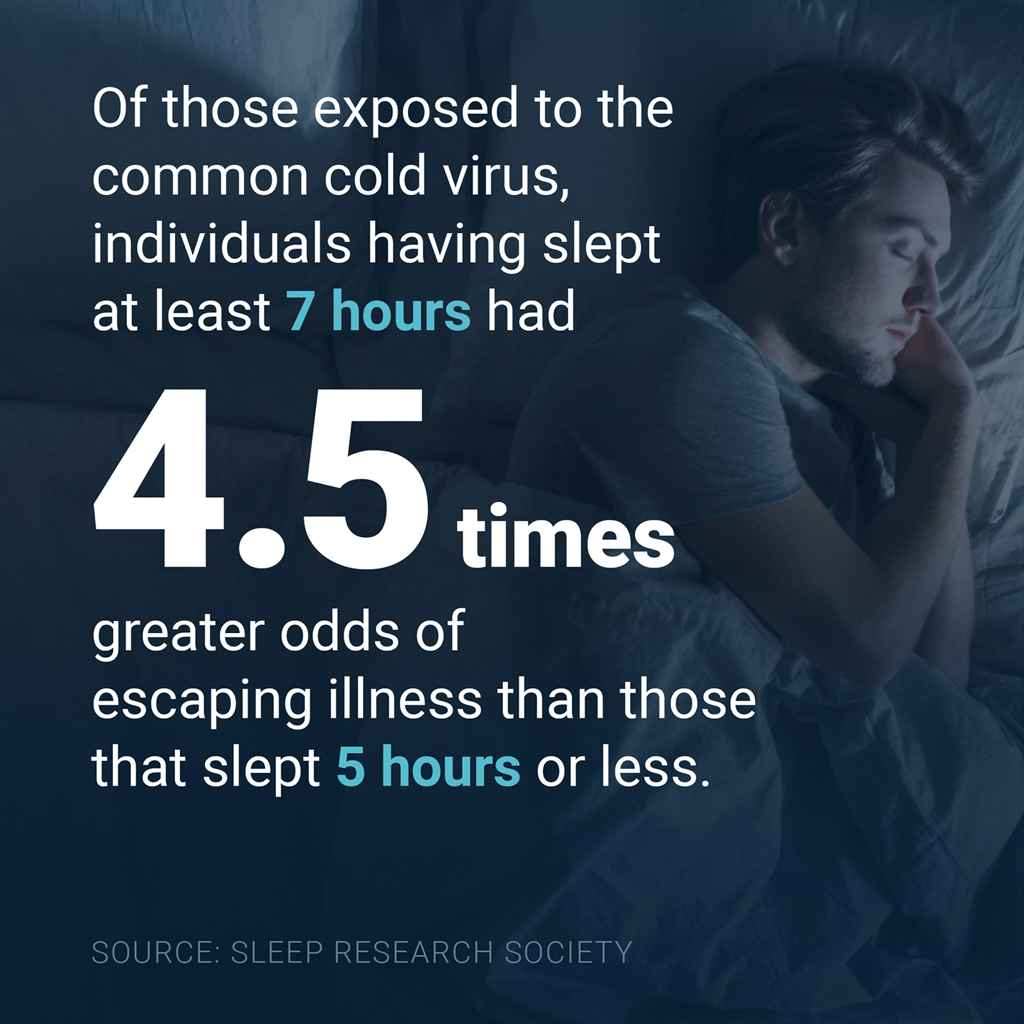-
As society grows more conscious of our health and immune system, we thought it would be good to share data from previous scientific studies on sleep and the immune system.
As society grows more conscious of our health and immune system, we thought it would be good to share data from previous scientific studies on sleep and the immune system.
At SleepWatch, we know that good sleep is critical for maintaining physical health. If you have ever had a cold or “flu” you’ve likely felt tired and sluggish because sleep is altered when the body is sick. (1).
Over the past 25 years, research has demonstrated that sleep enhances immune defense by influencing chemicals that are controlled by our brain. (2)(3) Through an elaborate method, these chemicals drive the immune system that our bodies develop for fighting infections. It logically follows that lack of sleep can greatly impact our general health.

In a landmark study, subjects were exposed to a common cold virus and then evaluated to see if their sleep patterns impacted whether or not they became ill because of the virus. Those who slept at least seven hours had 4.5 times greater odds of escaping illness than those who slept five hours or less.
Another study looked at two groups of people who received a flu vaccine shot. For six days prior to the flu vaccine shot, one group was restricted to four hours a night of sleep while the other group enjoyed seven and a half to eight hours of sleep. When tested, those people who had robust sleep showed a significantly greater antibody response in their body which is required to fight off infections. This suggests that getting adequate sleep appears helpful in maximizing the protective benefits of a flu vaccine shot. There is no doubt that sleep is a regulator of our immune system and directly impacts our ability to both fight off infection and heal.
As we adjust our habits to achieve better health, be sure to manage your schedule so that you get the recommended amount of sleep each night. The National Sleep Foundation recommends the following amount of sleep:
- Teenagers 14 to 17 years: 8 to 10 hours
- Young Adults 18 to 25 years: 8 to 10 hours
- Adults 26 to 64 years: 7 to 9 hours
- Older Adults ≥ 65 years: 7 to 8 hours
See below for additional relevant reading:
- How to boost your immune system - Harvard Health
- Recommendations to help protect you and your family Covid-19 - CDC
We believe there may have been a misunderstanding associated with the previous version of this article. Accordingly, we've updated this article as of Mar 14, 2020 to clarify the intended message.







